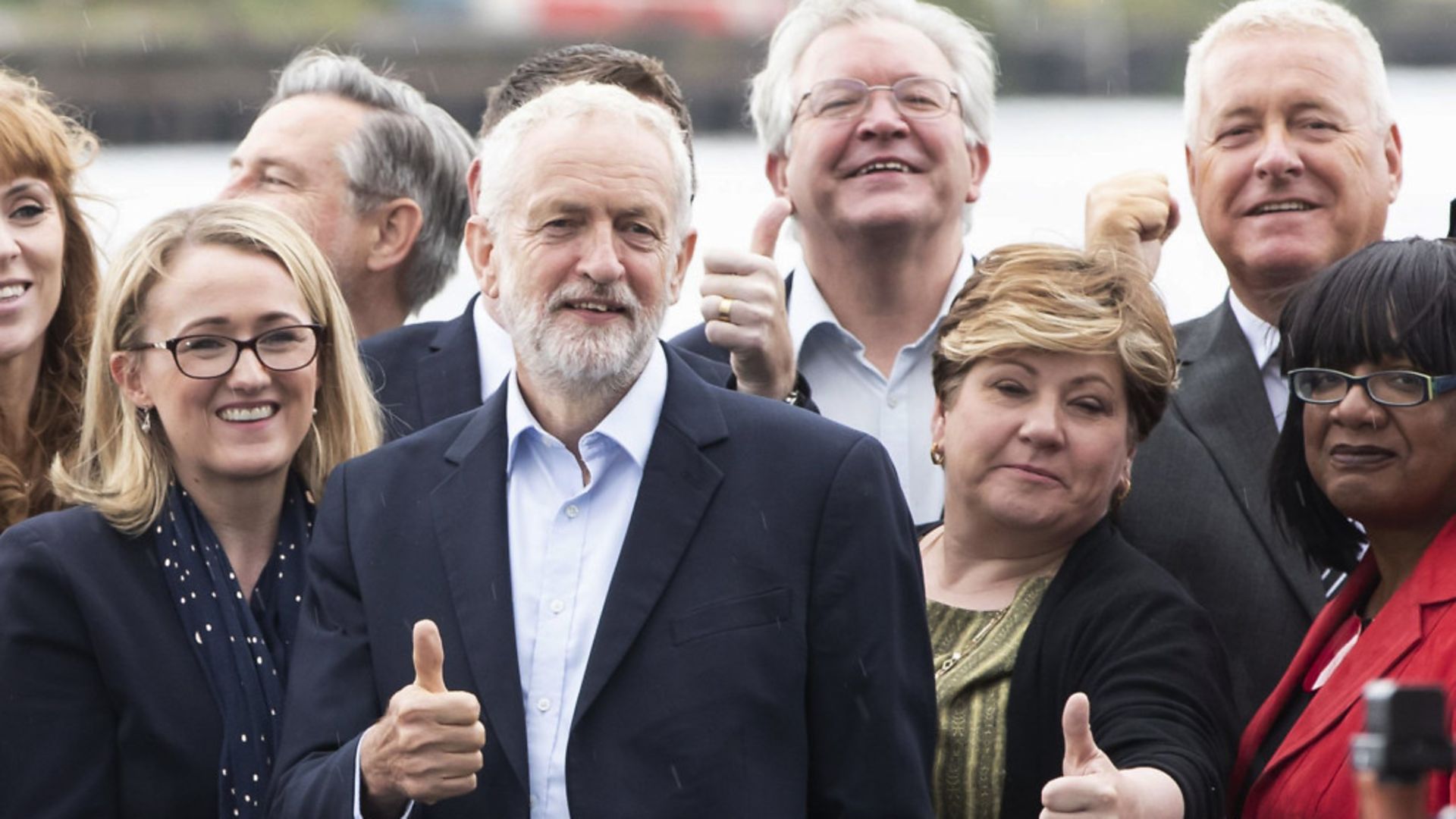In a part of south London, a revolution is taking place. One that has its roots in 1960s American protest movements but that has recently made its way, circuitously, from the fountains of Washington DC to a 200- acre site near Croydon.
A British life sciences firm, Compass Pathways, has struck a deal with the NHS to build a facility that they say will “accelerate the integration of innovative psychedelic therapies into the NHS”.
In the last decade or so, scientists and researchers have been experimenting with a series of psychedelic drugs to discover what potential they might possess to help those with a variety of mental health illnesses.
Increasingly, the results coming back are that certain compounds – psilocybin, MDMA, ketamine and others – combined with psychotherapy have better outcomes for patients with depression and PTSD than the standard available treatments.
In fact, the studies – many done in the UK – show that the psychotherapy of previously treatment-resistant forms of depression, and even some addictions, are hugely aided by measured doses of psychedelics taken in controlled settings. Practitioners say that therapy sessions pre- and post-drug administration are critical to the process of establishing new neural pathways, which the drug facilitates.
The process is neither fast nor cheap but, studies suggest, is ultimately beneficial for most people placed on these trials. A BBC documentary recently followed participants in a small trial done by Imperial College London that looked at the effects of psilocybin – the active ingredient in magic mushrooms – on depression. The effects were compared against the standard anti-depression medication (escitalopram, an SSRI, or selective serotonin reuptake inhibitor) which is currently prescribed to 17% of the adult population in England, and rising.
The trial found that nearly two months after treatment, “70% of those in the psilocybin group saw their symptoms decrease by 50% or more”. In the SSRI group, the number was 48%. The remission rates were more impressive: 58% of those in the psilocybin group were considered in remission six weeks after treatment ended, versus 28% of patients in the SSRI group.
Companies are now taking this science and running with it. Compass Pathways’ new facility aims to treat nearly 1,000 people over five years. Another life sciences firm, Awakn, has already set up shop in Bristol and London offering ketamine therapies to treat depression and is researching the effects of MDMA on a variety of different types of addiction, including alcohol, gambling and binge-eating.
There is investment pouring into these companies from those who either believe – or at least speculate – that the combination of hard science, backlogged healthcare systems and a mental health tsunami mean that any help offered by psychedelic-assisted therapies will become incredibly valuable. The holy grail, of course, is to have these treatments available via the NHS: it is perhaps worth noting that the chair of the South London and Maudsley NHS trust, the largest mental health trust in the NHS, which has already signed agreements with Compass Pathways, is the former Lib Dem MP Sir Norman Lamb – a vociferous campaigner for drug liberalisation.
In the last few years, some of the bigger life science firms have issued initial public offerings, but mainly in the US and Canada – currently, no psychedelic company is listed on the London Stock Exchange. The regulatory environment in the UK lags behind that of other nations, where companies are not only making money and innovating but are, crucially, helping people get better. For example, the drug psilocybin was placed into Schedule 1 of the Misuse of Drugs Regulations 2001 based on a Home Office evaluation for which, it is reported, the paperwork can no longer be found.
It remains a Class A drug in the UK, but at the turn of next year will be used as a medicine for the most desperate people in places like Oregon and in Canada where psychedelics are offered to those in end-of-life care. The so-called “shroom boom” on the other side of the Atlantic has seen psychedelic drugs decriminalised in certain US states, with the Food and Drugs Administration designating psilocybin as a “breakthrough therapy” drug for severe depression: the industry is set to be worth around $2.4bn (£1.9bn) in the next two years – $10bn (£8bn) by 2027 – with a lot of the science being done in the UK justifying changes in the law in Canada and the US: a major psychedelics conference is taking place this week in London.
One of the small steps being asked for by these growing companies and campaigners, like the Conservative Drug Policy Reform Group, is to reschedule psilocybin, a technical change that would not affect the law around personal usage or supply – it would still be illegal – but would allow researchers easier and cheaper access to the substance for more trials to take place. The move would also come with restrictions that would mitigate inappropriate prescribing of the treatment by doctors.
Indeed, in February of 2020, the-then Downing Street chief of staff, Dominic Cummings, chaired a meeting of scientists who were exploring the therapeutic benefits of these drugs. Professor David Nutt, who was sacked in 2009 from his role as the government’s chief drugs adviser for claiming that ecstasy and LSD were less harmful than alcohol, contributed written evidence to the discussion.
As part of a team at Imperial College, Prof Nutt has been a key player in the studies around the effectiveness of psilocybin in treating depression.
The soon-to-retire Conservative MP Crispin Blunt claims the prime minister told him in May last year that he was persuaded by the science and would seek to reschedule psilocybin.
Blunt says that the PM told him he had signed off on the decision, but since then the Home Office has denied on record that any such undertaking was given. Again, someone isn’t telling the truth. Blunt told Psych magazine that: “Regrettably, in my experience in these last three years, this government responds to the prospect of pain, not pleasure, so the prospect of pain is what it shall receive until it acts.” The Advisory Council on the Misuse of Drugs (ACMD) is due to make recommendations to the home secretary, Priti Patel, after concluding a review into whether certain drugs, including the psychedelics, suffer from barriers to research.
Despite the urgency to speed up research, particularly into psilocybin, the government has only committed to look again at psilocybin should the Medicines and Healthcare products Regulatory Agency approve the drug for medical use. Campaigners say this will happen in the next five years but that the research needed to make this happen will only be facilitated by… wait for it… more studies – studies that cannot be done quickly if the government doesn’t move sooner. It is a perfect Catch 22.
In the absence of political consensus, what are those who are suffering the most doing? Unsurprisingly lots of people, now aware of the science and the law changes in other nations, are self-medicating. I get people calling my LBC show describing how they grow their own mushrooms, forage in the local woods for them or just buy them off the internet. They often describe an almost immediate beneficial mood change and lasting effects for their mental health: one listener told me it had saved his life. I appreciate there is a very fine line here between pointing towards helpful drugs for depression and PTSD that are currently illegal and advocating for people to break the law. I’m certainly not doing the latter.
The point is that you shouldn’t have to break the law to gain access to medical treatments that grow almost literally around you.
Another example of effectiveness is the charity Heroic Hearts. Set up in America, there is now a British arm that gathers military veterans who are suffering from complex, often untreatable, PTSD. Over several years, the charity has taken groups of these vets to Peru to an ayahuasca retreat. Ayahuasca is an extremely potent psychedelic that is normally taken in group settings with the guidance of a shaman. The charity says that the people they help come back with far fewer symptoms of PTSD – they say that this retreat has given their fellow ex-soldiers a better chance of living much more fulfilling lives. Further trips to Peru and to the Netherlands are planned.
Politics now lags behind business, science, and people’s needs and desires. Drug Science and PsiloNautica published results of a YouGov survey that asked people in Britain whether they would “support the government relaxing restrictions on research into the medical uses of psilocybin”. The results by geography and by political party were in favour. More than half (51%) of Conservative voters said “yes”, 60% of Labour voters, too. From London to Edinburgh to Belfast, there was more than 50% support for this incremental first step.
This generation of politicians who brought in – for understandable reasons – restrictive, draconian, maddening and insensitive lockdown laws have a moral duty to move at the highest possible speed to help alleviate the suffering of those with mental health conditions made considerably worse by the pandemic. It’s not that the politicians are responsible for Covid, nor were they responsible for the decline in people’s mental health. But they cannot get away with ignoring scientific progress, the legal changes in other nations, business, and the cries of sufferers, in pursuit of a political strategy that attempts to fetishise the idea that they are “tough on drugs”.
The Conservative government is displaying an apparent ideological opposition to drug reform that seems to be rooted either in ignorance or fear. Incredibly, Labour is on the same path, with Sir Keir Starmer saying he had “seen too much damage” caused by drugs in his role as the Director of Public Prosecutions to support legislative changes.
Many politicians I ask about this on LBC cite the “slippery slope” argument. That a liberalisation here or there, even one carried out under controlled circumstances, backed by scientific evidence, and administered in a clinical setting, risks causing a kind of bacchanalian orgy of recreational drug-taking. This is obviously completely absurd. The same “slippery slope” is never cited to argue that doctors should be stopped from giving patients morphine in hospitals.
The argument about decriminalisation or legalisation is not what campaigners, scientists or many sufferers are asking for. In 2018 prime minister Theresa May agreed that cannabis should be available on prescription for medical use, despite her being implacably opposed to legalising cannabis for recreational use. It took a pincer movement from the-then health secretary, Jeremy Hunt, and home secretary, Sajid Javid, to get the change brought in, a change that was justified both by the scientific evidence about the efficacy of cannabis, and patients’ needs: the cases of two young epilepsy sufferers caught the nation’s attention.
For the life of me, I cannot understand why a similar degree of pragmatism isn’t being shown around currently Schedule 1 psychedelic substances.
It is maddening that this process of rescheduling seems unable to be sped up given that the investment is there, the science is there and the need for help is growing. It can only be an issue of plodding, sclerotic process that prevents sufferers of depression and PTSD gaining access to these drugs that are quickly becoming classed as medicines in the US and already considered so in Canada, but deemed to be “too dangerous” in the UK.
For the last few years, we’ve heard the front benches of both political parties tell us that they justified sweeping legal changes on the basis of having “followed the science”. Both parties shunned the orthodoxies of life, liberty, and the pursuit of freedom in a democratic nation when the science around Covid was thought to justify doing so. And yet when old orthodoxies are challenged again by this science on psychedelics, when ideological bedrocks are gently chipped away at, the response is to bury heads in the sand.
It’s not good enough. Boris Johnson, Keir Starmer: follow the science.
Tom Swarbrick is an LBC presenter and former adviser to Theresa May



